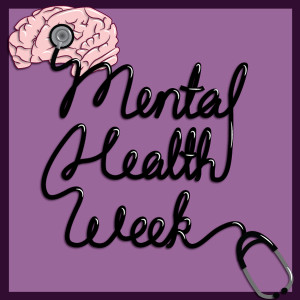This piece is part of in-Training Mental Health Week.
As medical students we’re told over and over to treat the whole patient, emphasizing unity of body, mind and spirit, recognizing the things that make us unique: upbringing, culture, values and beliefs. But on the way to achieving this holistic view of our patients, we often lose ourselves in the process.
Barraged with metabolic pathways, pathological markers and exams, medical school tends to become a zero-sum emotional game. Whether it’s throwing ourselves completely into our work to pass the next exam or spending sleepless nights worried about whether we know enough to be competent clinicians, there is considerable stress associated with becoming a healer, so much so that it becomes easy to lose sight of how to self soothe and self heal. Recently, JAMA Psychiatry published a call to action for clinicians to address depression and mental health concerns among medical students and residents. But before we can combat epidemic proportions of pathological sadness and anxiety, how can we foster a culture that allows us to recognize and accept ourselves for who we are?
1. Get screened today: Online screenings for everything from alcohol abuse to major depressive disorder are available. We owe it not only to ourselves but to our families, our friends and our patients to figure out whether the level of stress we’re feeling is “normal,” or if it may be worth it to consider talking to someone.
2. Accept help: One of the advantages of being at a medical trainee is that there are often low-cost or free counseling services available. It can be scary to go in and talk to someone new, but speaking from personal experience, whether you need a place to vent or are concerned you may be depressed, no one should have to go to bed feeling an uncomfortable burden of worry.
3. Seek balance: Stress is the norm in medical school. We joke about the number of “all nighters” we pull (to date I have not pulled one and I’m still passing) or about the number of life events and passions we’ve sacrificed for our studies. I think back to how before medical school I had a daily 90 minute yoga practice. In the stress of trying to balance the need to pass medical school and needing at least seven hours of sleep a night for my emotional health, that daily yoga practice has whittled down to three our four times a week, exam schedule willing. It’s something I’m trying to work on, but I know it will take time and constant effort.
4. Speak out: Many people live in fear of a diagnosis code; it’s a label that follows you throughout the health care system, and that fact can be terrifying. As prospective clinicians, we not only have access to cutting edge scientific knowledge about the nature of depression and other behavioral health conditions, but we also can share our personal experiences to shape policy, perspective and opinion. Whether it’s speaking out against your own fears or taking to a blog, find your platform and raise your voice. You can combat stigma in any number of ways.
5. Recognize your perspective: Perhaps the biggest source of stigma comes from the fact that we believe to be healers we cannot ourselves need healing. In my own life, I have come to realize that one of the best assets I offer my patients is that I can empathize with and understand their concerns about depression and anxiety on a more personal level.
6. Join the conversation: Share your stories in the comments section and help us raise awareness about behavioral health.
The culture of medicine cannot shift over night, and I recognize that. But together, with our words and our actions, we can begin to tackle the important issue of depression in our fellow physician trainees. We can’t afford to wait any longer — it’s time to talk about mental health.

